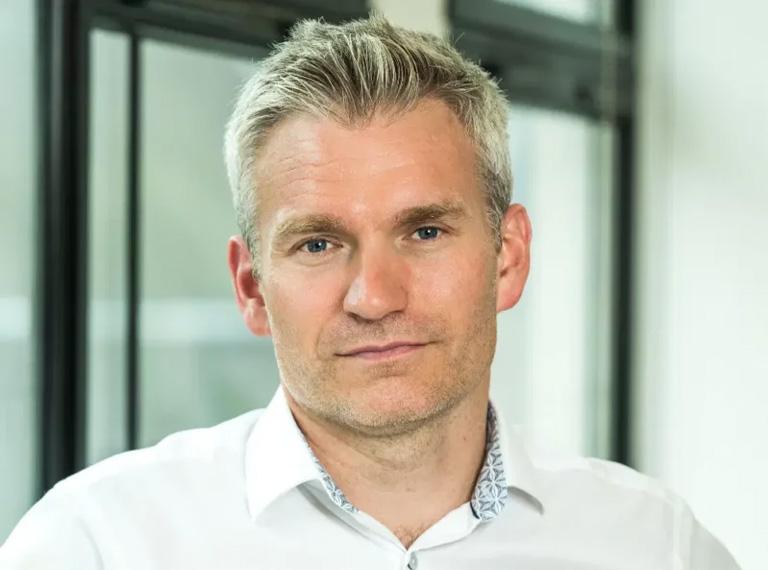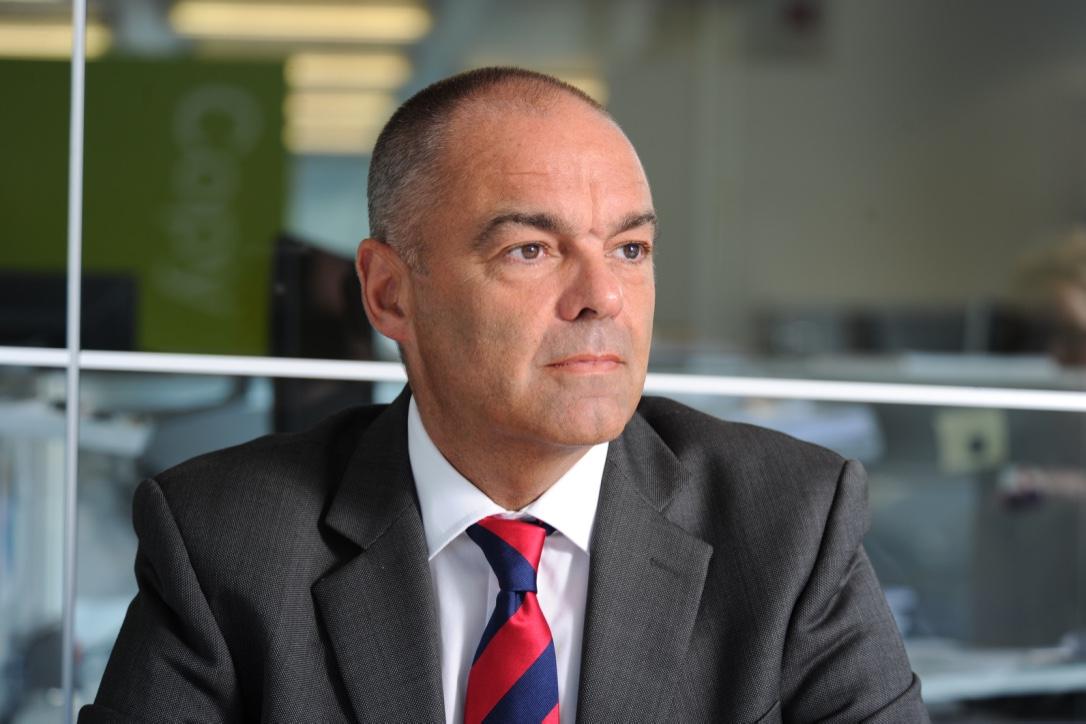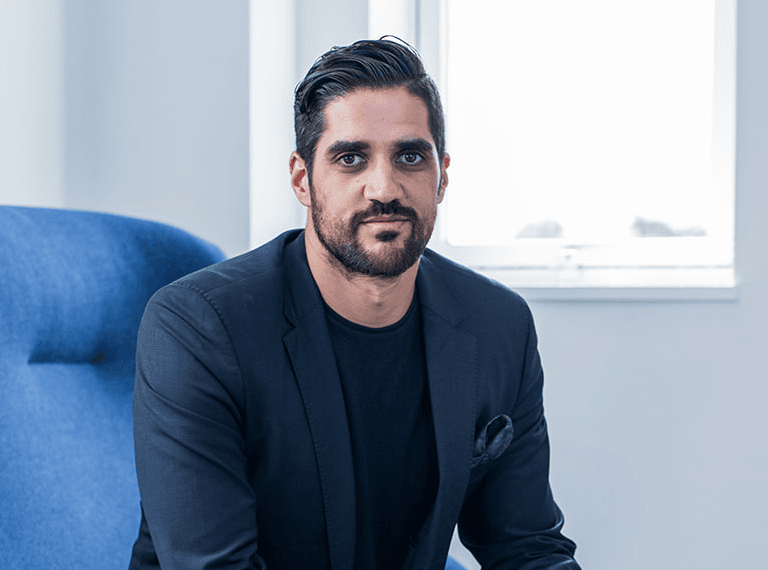What are private equity businesses looking for when they fund a company? How do you make your SME stand out from the crowd? How do private equity businesses support their portfolio companies?
These are just some of the questions we asked Tommy O’Sullivan, Managing Partner and Co-Founder at Beach Equity.
Watch the video interview or read the full interview below:

Q: Can you give us a brief introduction about yourself and your career background?
A: I am the managing partner alongside my co-founder at Beach Equity. We invest £2 - £10 million into a range of companies operating in the UK and, given the size we invest, we obviously specialise in investing in the smaller companies. What we are looking for are companies which are placed in their given sector with a good reason why they're going to grow, and we can support those companies through their growth period.
There are two things that make Beach Equity different from some of our peers. First of all, we allow people like you and I to participate in the transactions, not just institutions. Also, I think it's the amount of work and our ability to support the companies through the investment process. There are a lot of people who talk about value, but it's actually a very difficult thing to really become part of a team and to complement what's going on, and that's something we're very proud to achieve and we can share some very great examples of.
Q: What motivated you to become a private equity investor?
A: It was a bit of an accident, if I’m honest. I was the child who walked around saying ‘why’ all the time – and I have one of those now, so I realise how annoying it was for people around me! I studied science at university, and I loved that and always thought I’d go into that. But then I was exposed to various things through a careers service at university, and I ended up taking a role in investment banking.
This was really interesting, but because we were investing in the top end of the market, so government bonds, indices and the biggest companies in the world, what we were actually doing was quite sophisticated modelling, trying to find tiny bits of information that we could play against in volume. We [were] never really having an effect on anything – it was all very clever.
I didn't find it particularly exciting and the biggest reason being, I like people. I like to be around people, particularly around people who have great ideas and really want to do something, want to change things. And so that led me to making the career step from going from the top end of the market in terms of a size, to the bottom end, and I immediately felt more at home.
I really enjoyed myself. I took a step through a ‘turnaround’ role and then on to the investment side – I immediately I felt more at home. In the UK, I think there's a lack of realisation that the SME market drives the UK. There are some incredible stats around how much of the employment is driven by small companies and how much of a tax is driven by small companies, and that’s what supports us all in terms of public services. They really are the backbone of the UK and to be a small part in supporting the amazing people who are driving these businesses is really exciting.
Q: What do you look for when you meet a company, and what sparks your interest?
A: It's one of those questions a bit like ‘how long is a piece of string?’
We invest across a lot of sectors. So, what we're looking for, in a given company, in a given sector, can change. In terms of commonalities, it probably fits into three buckets, first being people. I mentioned before, we are backing people.
They are companies, they are businesses, but people are really going to make a difference and everyone in the building is going to make a difference. So, part of the investment process is just making sure there's a meeting of minds, a meeting of understanding around the company, why the company is great and why it can be even greater, and then how we can help that company moving forwards.
The second one is more about the company and the product. So, proof of product and proof of market acceptance. We're not venture investors – we invest into companies where the product is absolutely accepted by the market, the product works and the stage they need to go through is actually growing, and we've got a lot of experience around some of those growing pains that all companies will experience.
And then more of a general investment thesis. For those who are interested in US sport they’ll know the expression ‘high floors, high ceilings’ and by this what I mean is the asymmetric nature of risk whereby the probability of things happening that could end up with a company going bust are reducing now the company’s progressing through their lifecycle.
It's become larger, and those risks that venture investors are willing to take on have receded, but it still is an incredible opportunity to grow because they haven't got that steady state that companies get to once they get to in excess of 30 million revenue and three or four million EBIT.
Q: How do you go about adding value to your portfolio companies, and what resources do you typically look to provide?
A: I'll start with a similar quote to the last question but a different reason: ‘how long is a piece of string?’
I think where people have gone wrong in the past, particularly at this end of the market, is believing you can implement template solutions. Talking about value creation, then trying to just execute very standard plans that people may study in an MBA or things like that.
At this end of the market, companies are very individual. The problems they face are very individual and the potential to grow. Quite often they’re doing different things; they're in niches of the market, they're doing things in a different way, so the first thing we need to do is really understand the businesses.
That is about taking the time, doing the due diligence process to really understand where are the strengths, where are the weaknesses, where are the opportunities, where are the threats, and then where can we feed in – not just to help them address weaknesses, but then actually play to their strengths. Again, in the market, it's not just about worrying about the threat, it's about where is the opportunity and how do we take full advantage of that.
So, using a specific example: [in] one of our businesses recently, we've been able to take them into a new territory. So, they're operating very successfully in the US. Through our network, we've been able to introduce them to a sales channel which will take them into Canada. So that’s on a very grand scale on how we can help.
On a more local scale, it's about understanding growth pains. So, a classic growth pain will be where we're used to managing those cash troughs when we would get short of cash, but they will suddenly become three times bigger. Those troughs can become three times bigger. I saw these things take down companies when I was in ‘turnaround’.
These are the kind of things we'll see coming that an entrepreneur might not because they’re focused on the bigger picture, because they should be. The processes, the controls, the very boring things, the manuals that allow you to scale up three times in a year. If you're going to triple your workforce in 12 months, you've got to have everything set so when these people come in, they know what they're doing. The whole induction process is up and running, all those things are in place.
Potentially to an entrepreneur, this is quite boring stuff. It’s not that they don’t see value in it, but their true skill is seeing opportunity and driving the company forward, whereas we actually get quite a lot of enjoyment out of doing some of this more boring, mundane stuff, but setting all those foundations around a company so then it really can achieve its full potential.
Q: What advice would you give to business owners who are starting to think about seeking funding?
A: The one single biggest piece of advice I give to people who are seeking funding is realising that this is about people. You are going to get into a partnership which is going to be anywhere from two to maybe seven or eight years.
You really need to understand the people you're working with. You need to be confident that you can work with those people – there needs to be a natural rapport. And there's going to be some great times and some exciting times – you have to want to share them with these people. Also there’s going to be some really difficult times. Do you trust, that when the difficult times hit, they're going to be the first place you're going to call?
We've been used to this in investing for a long time: we’re used to the peaks, we’re used to the troughs. The troughs tend to be common; it's almost always around cash management, the lack of structure, around scaling – those kind of things. If you are happy that they’re the first person that you’re going to call, then you’re going to get really [good] value there.
The converse of that is beware of people who are asking you for generic information requests and trying to force you into a template or a standard model. Your business is special and if you don't get the feeling that they consider your business to be special, then you're just going to be a number in a fund and you’ll be treated like that forever.
Do take the time to get to know people. It's very easy for me to say it isn't just about the valuation number; that’s obviously incredibly important, but for small differences in a number, [look for support when trying to decide who to work with], where someone can support you on the journey and really make a difference through that journey. Be very careful because you will be with them for a long time.
Q: What trends have you seen over the past 12 months and what sectors most interest you currently?
A: Twelve months is a really interesting period to ask about. Towards the end of last year, there was a very different sentiment to the first six months of this year. What we saw towards the end of last year, there was definitely a fear: people were receding from the market, everyone was trying to work out what the fallout was from everything that happened in 2022. There’s definitely been an increased enthusiasm in 2023.
One of the things we've seen is a vast increase in the inbound interest we've had of people wanting to participate alongside Beach [Equity]. As I mentioned before, we allow individuals to participate in those transactions, and so people have realised the asset class is strong. Things have improved; we're seeing some improvement in some of the macro data that's coming through.
People understand the market, they understand there’s a really good opportunity here. There’s a really good return, but they understand that they need support. They need support in terms of finding the right companies, being able to ‘diligence’ those companies and then being able to support those companies on the way through – and that’s why people come to companies like ourselves.
In terms of separating out the different sectors, I think there is still concern around the consumer sector. We haven't seen the interest rate increases feed through yet. A lot of people have been on fixed rate mortgages, so they will be falling out through the period, so there’s definitely going to be a squeeze. The mortgage rates are as high as they’ve been for a long time and at the moment, it doesn't feel like that's going to be coming down as quickly as people thought it was going to be coming down, and it's going to take a lot of disposable income out of the market.
That said, there's always room. Prime assets will always do well - restaurants for example. It's a difficult sector at the moment, but the best restaurants will still do very well, so it just means there is definitely a flood to the real prime assets within those areas. I wouldn't say we're not looking at that area, but it's not necessarily a priority.
In terms of what we're investing at the moment, we're looking at a lot of very functional things where companies are allowing other companies do things a little bit better. So that could be saving cost, increasing efficiency or actually changing the processes that people are using, or thematic events.
Our latest investment: we’re investing in a company that is taking advantage of the fact all the copper phone lines are being turned off over the next couple of years. So, we were going to lose our landline numbers unless we move to VoIP. There’s a series of VoIP providers at the upper end of the markets, but at the lower end of the market, so small businesses, no one's really servicing the businesses of one-to-nine people very well. We're investing in a product that's specifically targeting that area.

We'll still be investing this year. We’ll definitely invest a lot more than we invested last year where we did sit out of the market a little bit. I think there is enthusiasm that's come back to the markets. We've increased interest in participating in transactions. I've been a bit surprised to see some of the transactions going through – the valuations that are going through, certainly from the US investors – which suggests we could be looking for a very bright second half of the year and then into 2024.
More about Tommy O’Sullivan and Beach Equity
Tommy O’Sullivan is the Managing Partner and Co-Founder at Beach Equity.
Beach Equity is a SME buyout and growth investment specialist. The firm’s direct model provides investors with the access, flexibility and opportunity to build their own custom-made portfolio of institutional-quality private equity investments. Utilising their experience, spanning the nexus of operator and investor, the team achieves a deeper level of understanding, both during due diligence and while working with their portfolio companies during the investment phase.
Prior to founding Beach Equity, Tommy spent his career investing in and supporting businesses. He has been a non-executive director / board adviser to 20 SMEs, primarily working to implement growth strategies both in the UK market and abroad, supporting management team development and strengthening the core business. Previous investments include Le Col, Influencer, NCE Group and Outright Games. Previous roles include Puma Private Equity (Managing Director) and Rockpool Investments (Investment Director) and Bear Stearns/JP Morgan (Vice President).
Should you have any questions for Tommy, please direct them to team@beachequity.co.uk
Want to know more about our accountancy and finance service? Speak to one of our expert consultants today.



